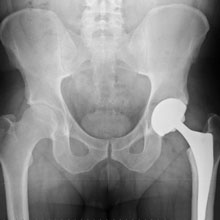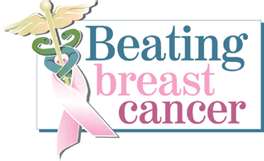The Effects of Addiction on Your Baby
Most people have addictive personalities, meaning that most humans will become addicted to something during their lifetime. While for the majority, their addictions can fit into a healthy lifestyle, for some, addiction controls their daily lives. Pregnancy presents a new risk level for mothers suffering from addiction, big or small.
There’s a misconception about addiction within our society, as tobacco, drugs and alcohol are the only assumed addictions. Yes, these top the list as the most dangerous and harmful, but they do not stand alone. Many women enter pregnancy while addicted to caffeine (including soda), sugar, and other unhealthy choices that have become dependencies in their lives. In moderation, these items are not life-altering, but when they become a true addiction, harm can be done; especially during pregnancy.
There is also the addiction of abuse and abusive relationships – mentally or physically. This can also be stretched to include toxic relationships.
Entering into and experiencing a pregnancy while battling an addiction can be scary. It is important to take action in any and all possible ways. The following are the effects that some addictions can have on your baby.
Caffeine: Consumed by just about everyone, caffeine addictions tend to be linked to coffee or soda. Research shows that more than one daily dose of caffeine ingested during pregnancy may be enough to affect fetal heart development and reduce heart function over the entire lifespan of the child. Caffeine intake is also linked to higher body fat in male infants. Studies have found that caffeine consumption during pregnancy leads to increased risk of miscarriage, low birth weight, birth defects, and SIDS. While in utero (and as newborns), babies do not have the ability to detoxify caffeine, which means that a single dose of caffeine can last up to 100 hours in the fetus.
Sugar: Once sugar enters the body, it causes the release of a chemical called dopamine, which controls our brain’s pleasure centre. It feels good. Sugar is found in every processed food item available, not to mention the desserts, candies, and treat options. Excessive sugar consumption leads to gestational diabetes and macrosomia, a condition in which a baby grows extremely large in utero. Gestational diabetes increases the risk of preeclampsia. Research also shows that a child’s brain will be trained to crave sugar throughout their life when excessively exposed in utero, leading to a lifetime of chronic problems.
Tobacco: Smoking during pregnancy can cause tissue damage in the unborn baby, particularly in the lungs and brain, meaning a baby’s lungs and brain may not develop properly or function properly. Smoking or consuming tobacco is linked to increased miscarriage risk, low birth weight, premature birth, and SIDS.
Alcohol: Fetal Alcohol Spectrum Disorder (FASD) is caused by consuming large amounts of alcohol while pregnant. Numerous birth defects and poor fetal development are linked to FASD. Prenatal and postnatal growth deficiency, specific craniofacial dysmorphic features, mental retardation, behavioral changes and a variety of major anomalies are also known outcomes when alcohol is consumed throughout pregnancy.
Painkillers: Prescription drug abuse is no safer than ‘street drugs.’ Infants born to addicted mothers, regardless of whether it’s a prescription or illicit drug, are at risk for neonatal abstinence syndrome (NAS). With NAS, the infant is going through withdrawal from whatever drug the mother has been using, meaning he will have a constant, high-pitched scream as his body slowly and painfully withdrawals. Babies are also at risk for abnormal brain development leading to a lifetime of learning challenges.
Cocaine: Extensive damage can occur to a fetus exposed to cocaine. Cocaine’s stimulating effect causes higher blood pressure and faster heart rate in the baby. Fetuses exposed to cocaine move excessively, do not rest in normal patterns, and suck continuously in utero. Cocaine can cause the placenta to separate from the uterine wall, ending in death for the baby. Premature birth, low birth weight, and small brain size are all linked to cocaine use during pregnancy. Babies born addicted may have tremors, muscle spasms, sleeplessness, and difficulty feeding, as well as a period of painful withdrawal.
Heroin: Heroin can cause serious problems for a baby, like premature birth, NAS, birth defects and stillbirth. Quitting heroin suddenly can lead to fetal death, medical help is needed prior to quitting. Heroin use is linked to placental abruption, low birth weight, SIDS, and painful withdrawal symptoms.
Abuse: Abuse during pregnancy, whether physical, verbal or emotional, produces many adverse physical and psychological effects on both the mother and fetus. Violence during pregnancy has been associated with miscarriage, late prenatal care, stillbirth, preterm birth, fetal injury (including bruising, broken and fractured bones, stab wounds and low birth weight).
Take the time to find help and support to ensure the healthiest environment for yourself and your growing baby.












